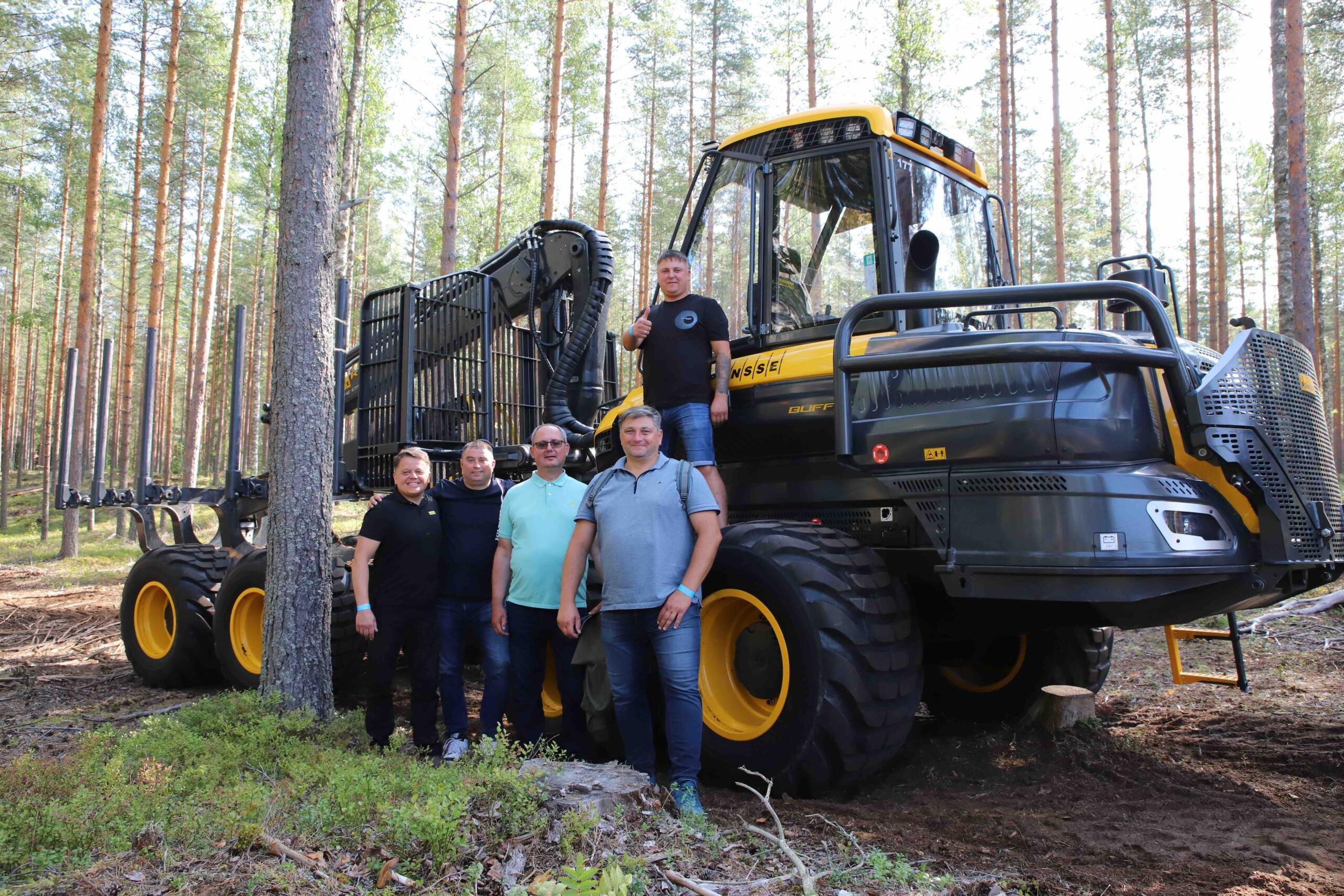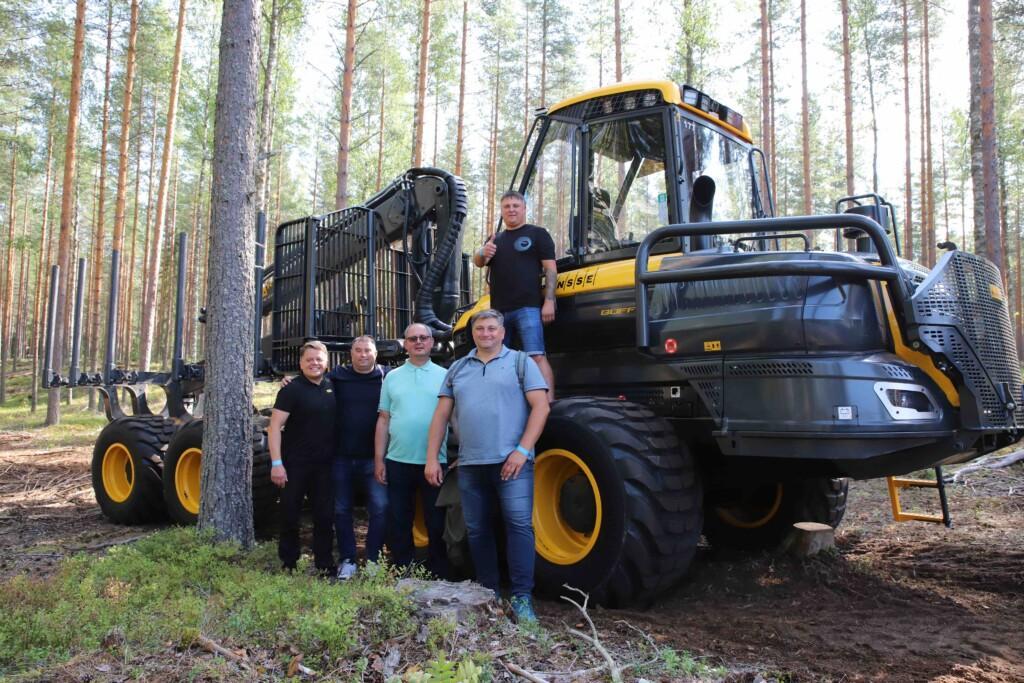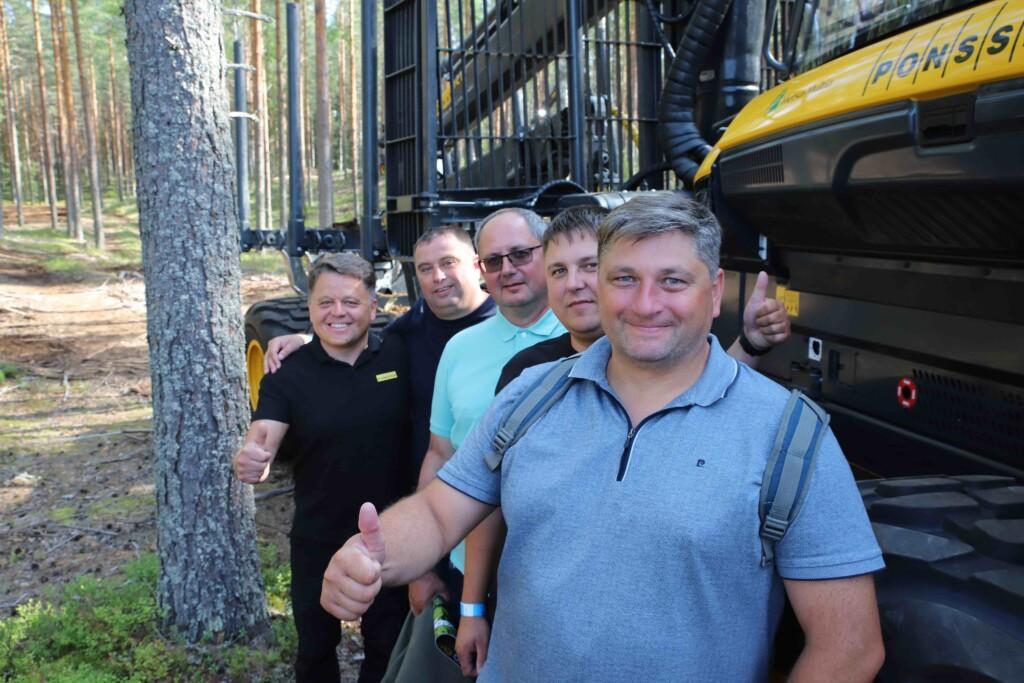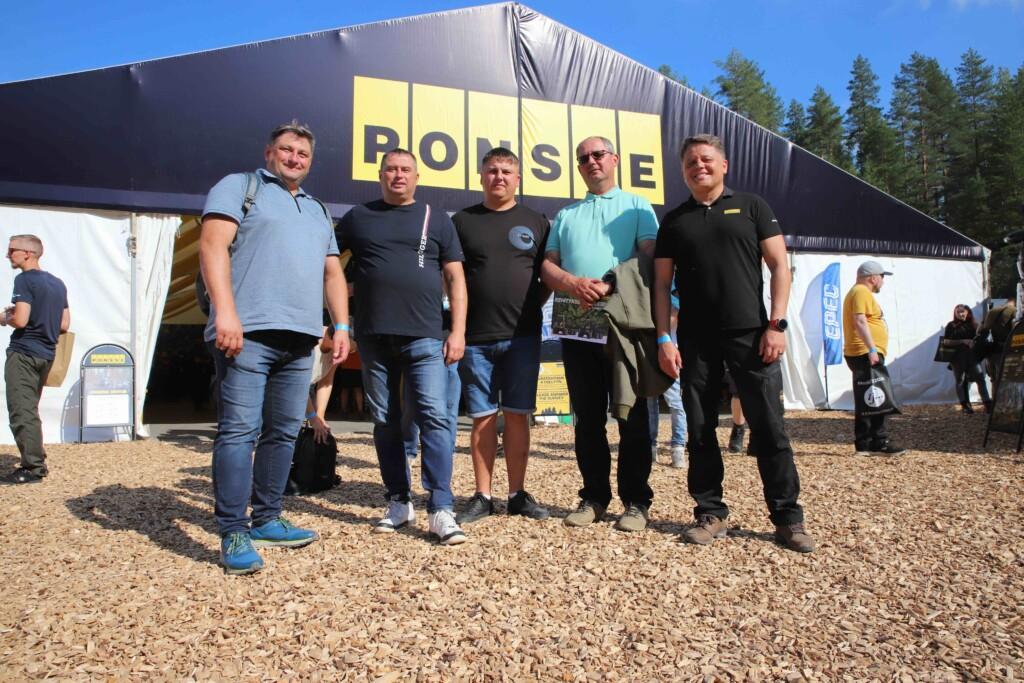
UAB Gerilita relies on its Ponsse fleet to harvest wood for export and bioenergy in Lithuania
Lithuania is not a particularly large forestry country. Only about 6–7 million cubic metres of wood are harvested each year. There are also no pulp mills in the country, so its fibre wood is exported. On the other hand, the domestic sawmill industry is strong, and small wood is used a lot in the production of bioenergy.
“We have four PONSSE Ergo harvesters, four PONSSE Bison forwarders and one PONSSE Buffalo forwarder. We operate our fleet in such a way that one driver works for seven consecutive days and ten hours a day. He then has a week off, during which the machine is operated by another driver. In this way, we can harvest around 150,000 cubic metres a year,” says Mindaugas Lukas together with Renigijus Lukas, Remigijus Zdanavicius and Algis Zulpa from the company UAB Gerilita.
In addition to forest machines, the company has 20 Volvo trucks, one of which is used to transport forest machines and nineteen to transport timber. The company operates in northern and western Lithuania within a radius of approximately 150 to 200 kilometres from the Baltic Sea to the Latvian border.
“In Lithuania, local transport distances for wood are typically quite long, usually more than a kilometre. Therefore, for the sake of efficiency, we use moderately large Ponsse Buffalos and one Ponsse Bison for our forwarders. In addition, nowadays the ground is often only frozen for 6 to 8 weeks a year in wintertime, so the machines must not be too heavy, since the ground is soft when it thaws,” the men say.
Wood delivered to the sawmill and harbour
About half of Lithuania’s forests are state-owned and half privately owned. The Gerilita company has its own forests, but it also harvests wood in state forests and other private forests.
“The pulpwood is often driven to the port and exported to Sweden, for example, to Stora Enso. Sawn timber goes to Lithuanian sawmills. Several local power plants use wood chips as a source of bioenergy. We do quite little thinning.”
More forest
Brothers Mindaugas and Renigijus Lukas founded the Gerilita company in 2010. Both have decades of experience in the forest sector. At first, the company only transported wood using trucks. It purchased its first own forest machines in 2020.
“The choice of forest machine was clear. Ponsse is the best machine, and Baltic Agro has the best maintenance and other services,” the brothers state.
Their first machine has now been driven for 15,500 hours in 4.5 years. The aim is to replace the machines once they have been driven for 20,000 hours. For their next harvesters, they want the new H7 harvester head that is being presented at the FinnMETKO 2024 trade fair with such advanced features as efficient Active Speed and even better geometry for large and crooked trees.
“We have no intention to increase the overall number of machines in our fleet, at least in the next few years, but we do plan to acquire more of our own forests for the company,” says Mindaugas Lukas.
Acclaimed dealer and importer
The team at Gerilita unreservedly praise the UAB Baltic Agro Machinery company that represents Ponsse in Lithuania. Companies belonging to the same group also handle Ponsse sales and service in Latvia and Estonia.
“We have our head office in Vilnius plus four sales and service points in different parts of Lithuania. Since Lithuania is a fairly small country, we cover the entire area so that the customer has a maximum of 120 kilometres to our nearest location – usually much shorter even,” says Giedrius Cicénas, Department Manager at Baltic Agro Machinery.
Baltic Agro Machinery belongs to the Danish group Danish Agro. In addition to Ponsse forest machines, the company represents Kobelco and Kubota earthmoving machines and Claas agricultural machines in Lithuania.
“Ponsse’s market share in Lithuania is around 30 percent. All wood is harvested using the cut-to-length method. A few years and a decade ago, a lot of wood was harvested by hand by lumberjacks, but nowadays all felling is done by machine,” says Cicénas.


